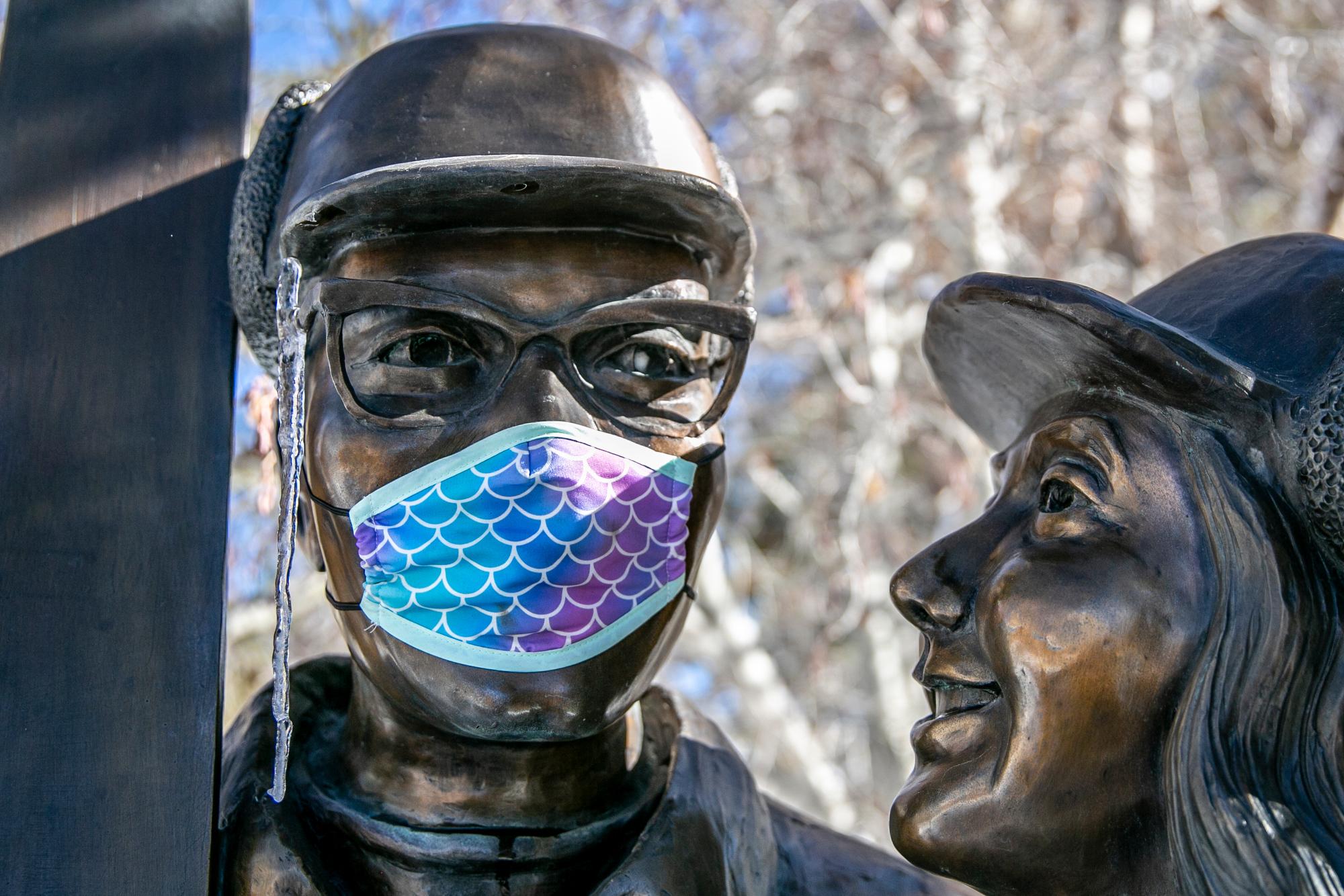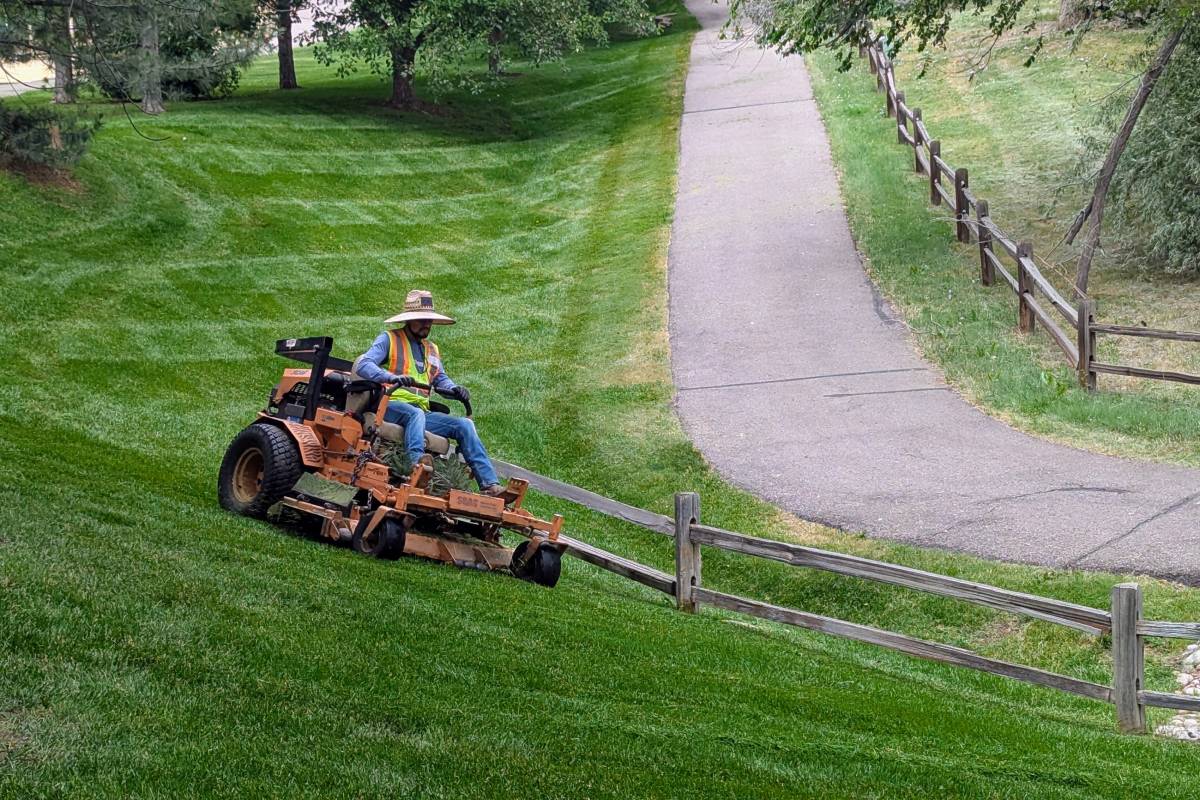
Falling COVID-19 cases and hospitalizations in Colorado have led many local health departments to abandon their mask mandates for indoor public settings, such as restaurants and retail shops.
The mayors of Denver and Glenwood Springs both announced Monday that they will allow their public health orders to expire this week. Leaders of health departments in Larimer, Adams and Arapahoe counties quickly followed suit, though Larimer’s mandate won’t expire until Feb. 12.
“We’re transitioning into a more sustainable management of COVID,” said Michael Hancock, Denver’s mayor. “A more targeted and methodical approach to outbreaks will allow us to focus resources without broad restrictions being forced on all residents and businesses in our city.”
Despite the loosening rules, health experts say widespread use of masks could help dampen future waves of COVID-19 and slow down the evolution of harmful variants. It’s also still a simple and effective measure that can protect you and your family, since COVID-19 isn’t going away any time soon.
“We should not be rejoicing and burning our masks,” said Dr. May Chu, a clinical professor in the department of epidemiology at the Colorado School of Public Health. “That psychology is wrong.”
CPR spoke with Dr. Chu about what residents should know as rules around masks loosen in many communities.
Note: Some communities, such as Boulder County, still have mask mandates in place. Individual school districts, government facilities, and businesses may also continue to require masks indoors for the foreseeable future, even if mandates go away.
Matt Bloom: Many health departments, including the Centers for Disease Control and Prevention, are still recommending folks wear masks in crowded indoor settings, even though government mandates are going away. This might be a simple question, but is it still important to wear masks?
Dr. Chu: We have found that [masking] helps reduce the amount of transmission of COVID-19 between people. If you're infected, and you wear a mask, you are reducing the source of the virus. And if you are wearing a mask and not ill, but somebody else you're talking to is ill, and you both have a mask on, not only is that person reducing the source of contamination, but also you as the uninfected have a better protective barrier before you inhale it.
So wearing masks, keeping a mask handy and practicing other health measures, like getting vaccinated, is still a very important part of the toolbox that we have. When you come to talk about lifting mask mandates, I think people are looking at the economic and the psychological and the social well-being of many others in that decision, because the stress [of mandates] can be enormous.
Bloom: If you’re someone who is still concerned about getting sick, when and where are the best places to wear a mask?
Dr. Chu: So there are some scientific numbers and facts that you should consider about the current situation where you live. If the infection rate or the prevalence of the virus in your community is less than 3 percent, there's a good chance that 97 percent of the time, you're not going to meet with somebody that has an infection, right? Just 3 percent of the time. And so it's pretty safe. You could probably not wear a mask if you are vaccinated, you don't mind getting infected, you feel like you are going to be in an area where you're not gonna be able to give it to somebody else that would suffer more than you would. So those factors need to be considered as part of being a responsible community citizen, if you want to just be sure.
Bloom: So that transmission rate, if that's down around 3 percent, you can be a little more comfortable, maybe not wearing a mask to the grocery store, or for example, if it's not required.
Dr. Chu: Right. And that information is readily available online, on TV.
Bloom: If you're vaccinated, is it still beneficial to you and your family's health to wear a mask in public?
Dr. Chu: Yes. Because vaccination is not what we call a “sterile immunity,” which means when you're vaccinated, you can't get the disease. You still can get infected [with COVID-19 after being vaccinated]. But the fact is that the infection is usually limited. But you’ve heard those stories where … there is a husband and wife, for example, a husband just has like nothing. And the wife, you know, gets very ill even though their vax profile is exactly the same. So there is a chance that somebody else could catch the virus from you and get quite sick even if you’re not.
Bloom: If I’m someone who starts wearing a mask less often, what’s the best way to store them for future or less frequent use?
Dr. Chu: I’ve seen people pull it down below their chin. I see now some of these, ingenious things, folks wear it as a clip-on their shirt or on a necklace kind of thing. So you can keep it as long as it’s dry, it's still good. Something is better than nothing. We’re asking folks now to wear what we call the KN95 or KN94 masks with respirators because the material is better at filtering out virus particles. But the fact is whatever you’re wearing should be fitted to your face. Otherwise, you lose the benefits, because if it leaks, you're really not getting much more protection. You just look like you're doing it. If your mask gets soiled, set it aside and just put it aside for about 72 hours, according to the CDC, in a paper bag and then it’s safe to reuse again.
Bloom: Are there any outdoor settings where it’s still recommended to wear masks?
Dr. Chu: You should use your smarts, right? I mean, people need to think about where they are situationally. If you follow NFL football and you follow, especially games played in the cold, you can see players and coaches their breath in the air. And if you look at where the plumes of air coming out, somebody's mouth during yelling and screaming, and if you have three or four people around you, their warm air breath blends with the other, and as the wind comes, swirls around them and comes back to them. You can imagine those could be the conditions in a lot of places. If you don't wanna breathe somebody else's air a mask might be a good idea.
Bloom: Do you plan to keep masking while you’re out and about in public?
Dr. Chu: Yes, I do. And it's because we have a vulnerable, immunosuppressed person in our home whom we love very much and we don't wanna bring any infection home. And so I will mask and protect myself to protect my beloved family member to not get COVID-19 from me because I don't think I can live with that guilt.
Bloom: I think a lot of people can probably relate to that. Either they have a young kid who isn’t able to get vaccinated or an elderly family member they see a lot.
Dr. Chu: It’s interesting. Authorities used mask mandates as a way of saying, you know, by July 4th, you can picnic with your family without a mask. So they sort of gave people a timeline when you can let loose, because there’s still a very negative connotation of masking. Because then you think, ‘I'm being punished until July the fourth,’ right? But it shouldn’t be about being let out of jail, if you will. The virus is not done with us. In Asia, wearing a mask has been used by everybody in many countries and cultures since before [COVID-19]. They just accept it and there’s certain times they don't wear a mask because they know they don't have to. And I would suggest at some point we might head that way as well.
This interview was edited for length and clarity.









